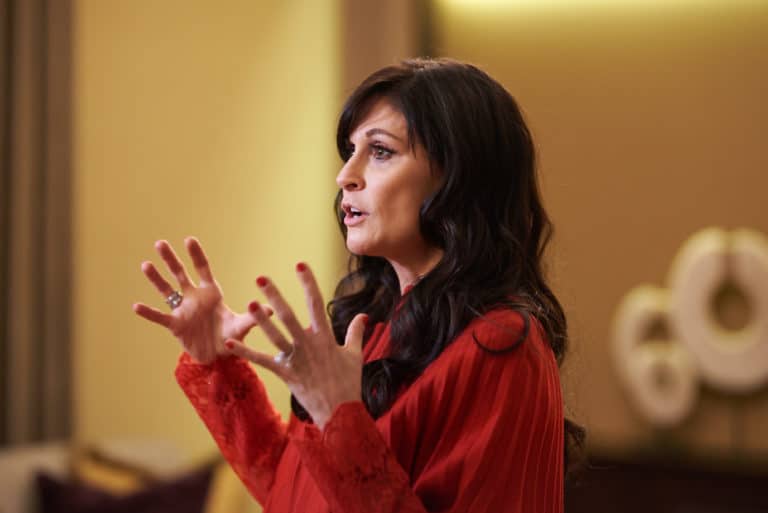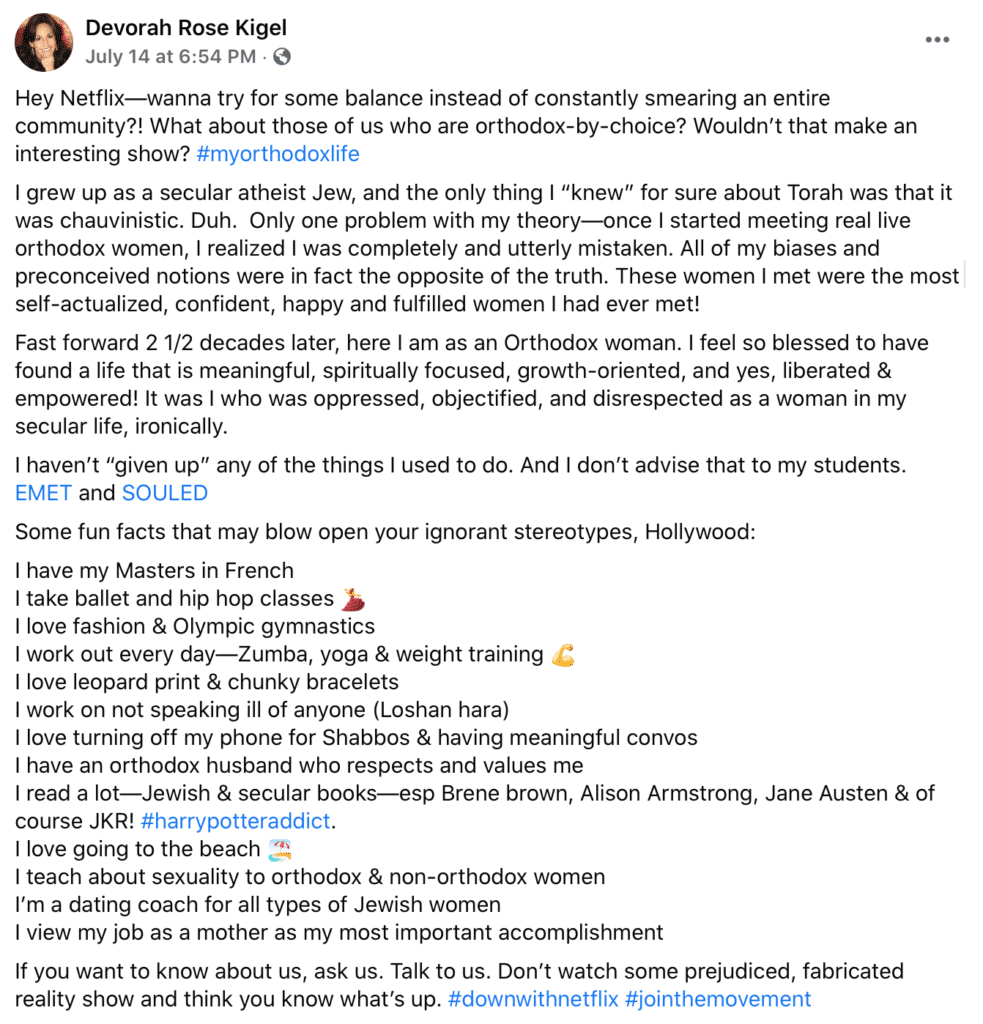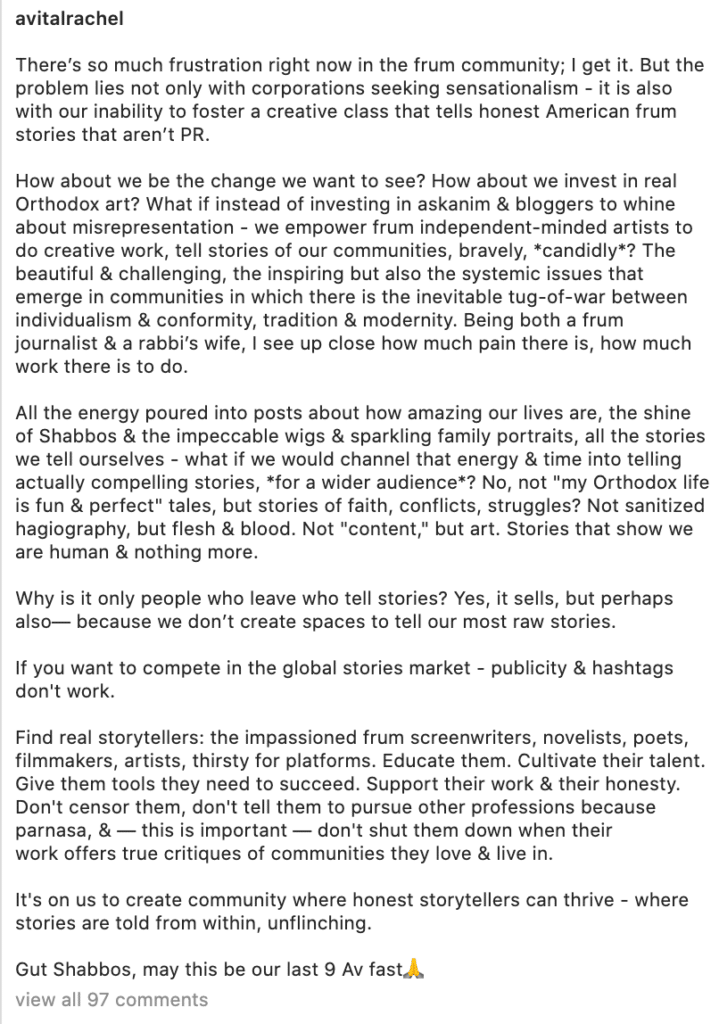
Last week Netflix released a new reality show called “My Unorthodox Life” which focuses on the life and family of Julia Haart — a woman who left her ultra-Orthodox Jewish community in Monsey, New York, to start a new life.
Today, Haart lives as a seemingly secular Jew in Manhattan and is the CEO of a modelling agency. Throughout the nine episodes in the season, “My Unorthodox Life” paints hew picture of ultra-Orthodoxy as “fundamentalist.” It especially harps on one area of Orthodox Judaism: treatment of women. Haart shares her experiences feeling restricted by her former lifestyle and especially the rules surrounding modesty.
Since its release, the show has elicited an intense response from Orthodox Jewish women who say the show’s portrayal of Orthodox Judaism is far from their lived experiences. They’ve started a social media campaign called “#MyOrthodoxLife” to share their experiences living as Orthodox Jewish women.
“Hey Netflix—wanna try for some balance instead of constantly smearing an entire community?!” wrote Devorah Rose Kigel in a Facebook post. “I grew up as a secular atheist Jew, and the only thing I “knew” for sure about Torah was that it was chauvinistic. Duh. Only one problem with my theory—once I started meeting real live orthodox women, I realized I was completely and utterly mistaken.”

Other women have chimed in.
“There are thousands (millions?) of Orthodox women who have a very different story. And yes, some of us work in #fashion too.” said Chavie Lieber.
I know Netflix loves fetishizing ex-Orthodox women who abandon their Judaism. But there are thousands (millions?) of Orthodox women who have a very different story. And yes, some of us work in #fashion too. Check out the #myorthodoxlife on Instagram if you don't believe me 🙂
— Chavie Lieber (@ChavieLieber) July 15, 2021
Although the social media campaign is meant to represent the beauty and empowerment that can come within Orthodox Judaism, it doesn’t mean there aren’t problems, said @kaekaecurtis in a Tweet.
#MyOrthodoxLife
— kaela is autistic af (@kaekaecurtis) July 15, 2021
I have found joy and meaning and a reason to live through Hashem and mitzvot.
I have also spent many a night sobbing after experiencing violent racism, wondering if I can stay, or if it’s worth it to do so.
My love AND my anger are valid. Let’s speak honestly. pic.twitter.com/JBJxdJ6t2e
“Why is it that only people who leave tell stories? Yes, it sells, but perhaps also— because we dont create spaces to tell our most raw stories,” wrote Avital Chizhik-Goldschmidt in an Instagram post.
Artists Sury Neuman and Shira Shenberger created a satirical Tik Tok ‘myth-busting’ the series.
Julia Haart responded to critics in an interview with the Jewish Telegraphic Agency.
“Before you judge the show, maybe you might want to watch the show?” Haart said in the interview. “For the people in my community, I think if they actually watch the entire show and not just the first episode, where I explain why I left… The next eight episodes show that we [in the family] all get along, that there’s beautiful things in religion and that I have nothing against Judaism… My children are still religious.”
“I love being a Jew, I love the people in my community. I hate fundamentalism, and there are aspects in our world that are fundamentalist, and they need to go, and they can go.“
Originally Published Jul 19, 2021 12:03AM EDT


